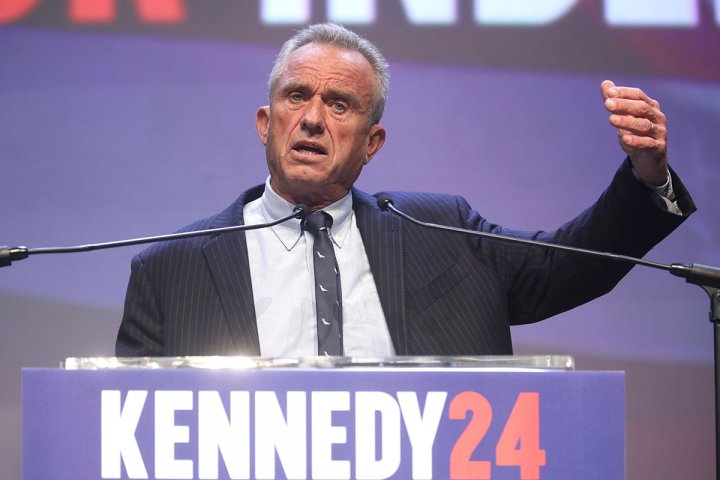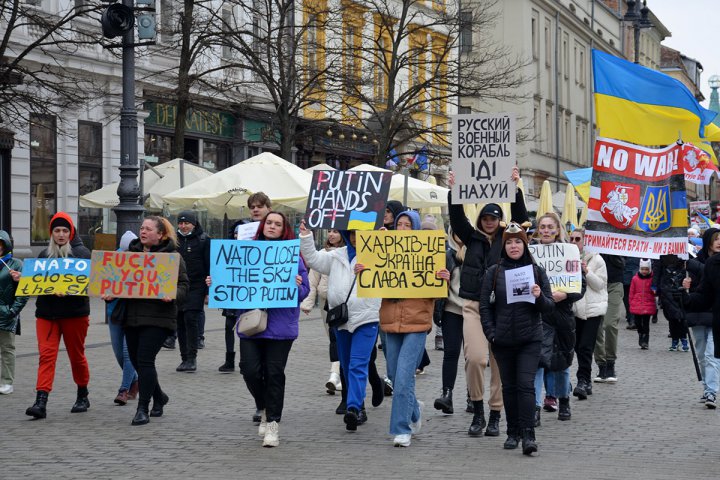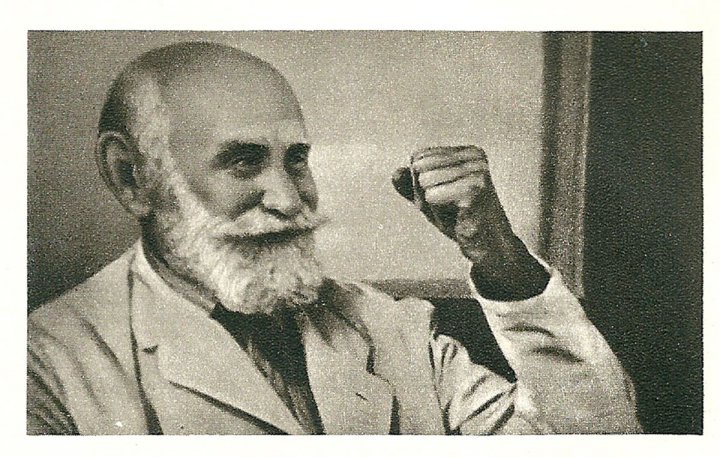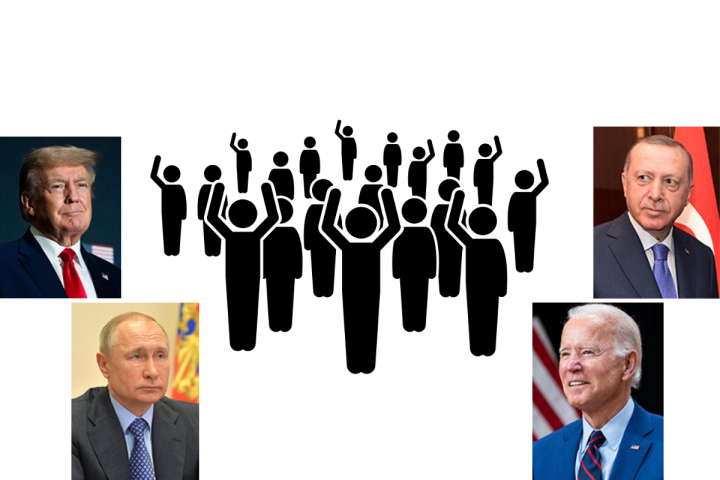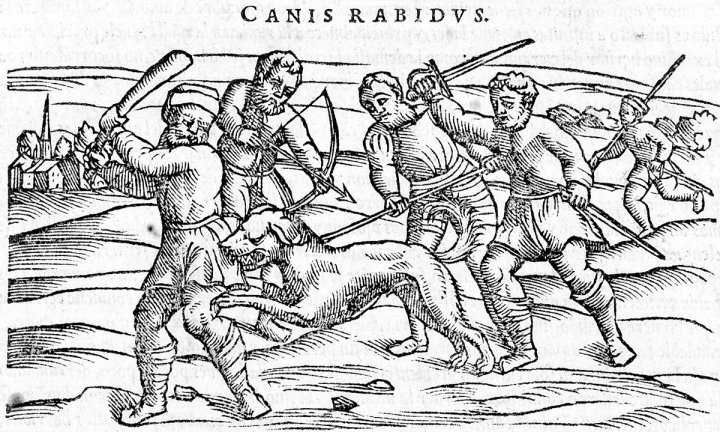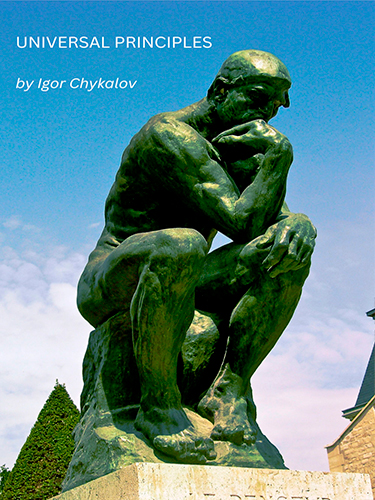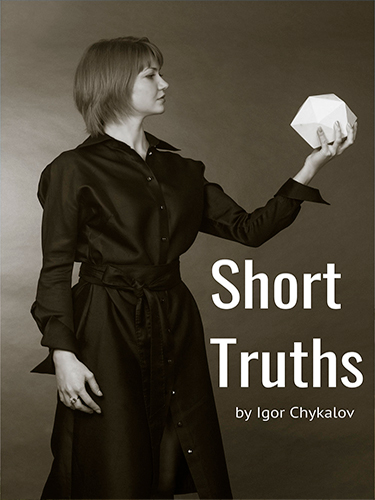Democracy Is Losing the War to Authoritarianism
The leader elects and asserts himself and the way he is treated,
And those who are weaker obsequiously look at him.
There is no other way in this life for the pack to win.
And the pack with elected chieftain will be defeated.
A. Makarevich, Russian poet and composer
And those who are weaker obsequiously look at him.
There is no other way in this life for the pack to win.
And the pack with elected chieftain will be defeated.
A. Makarevich, Russian poet and composer
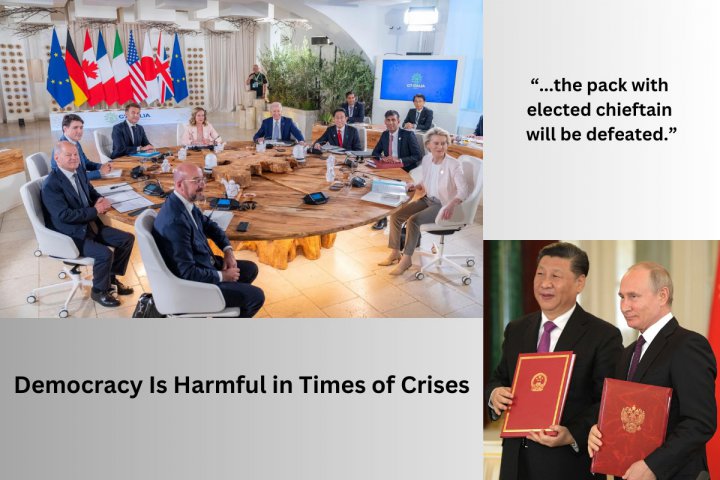
Collage by author from the works of Kremlin.ru (CC BY 4.0) and The White House (Public domain) via Wikimedia Commons
On October 15, the collective West through the mouth of Finnish Foreign Minister Elina Valtonen finally said out loud what has long been clear to many: it was tired of the war in Ukraine and wanted peace in any form.
Mrs. Valtonen said that the fatigue from the war «is real. And increasingly so...» and called for more decisive support for Ukraine, because «if we allow Russia to win in Ukraine, then essentially we end the credibility of our deterrence.»
She also mentioned the war in the Middle East, which diverts Western attention and resources from Ukraine, and Russia’s growing “shadow fleet” of oil tankers used to circumvent restrictions on crude oil sales.
……….
Democracy is declining in the world because of the absence of real enlightened leaders in many democratic countries.
Democracy is losing popularity, and, accordingly, democratic countries are losing their leadership in the world. They have many inner problems and are no longer a good example of effective governance (although they claim to be).
The national elites degenerate, resting on their laurels, and do not allow real enlightened leaders to come to power positions like it happened in Singapore (Lee Kuan Yew) or in South Korea (Park Chung-hee).
A real leader differs from other people not by having completed leadership courses, but by being able to take action and assume responsibility. Most of the modern formal leaders of different countries are not capable of either. They are just mediocrities which have been elevated to the highest positions in their countries as compromise political figures in the struggle between different clans (parties) for power. The goal of such fake leaders is to stay in politics as long as possible which means not to make any “dangerous” decisions for not worsening things for themselves.
However, now humanity has been facing major challenges like wars, pandemics, climate change, natural and man-made disasters, mass emigration, and it is no longer possible to make just evasive decisions.
……….
Is Mr. Putin a leader?
Mr. Putin is certainly a real leader, but an “obfuscated” one (I would rather use the word “endarkened” as an antonym for “enlightened” if it existed in English).
He is capable of action and is not afraid to take responsibility. Maybe, he is convinced that nothing bad will happen to him for that. For 2.5 years of his war in Ukraine, he has been trying to show the whole world 1) the «greatness» of Russia (and him personally) and 2) the inability of the coalition of rich democratic countries to punish Russia and him for the brazen violation of existing international laws and war crimes.
From the very beginning of this war it was clear that either the democratic world would put Mr. Putin and Russia in their proper place, or Mr. Putin would prove to everyone that his «another world» is the new reality for the whole world.
Mr. Putin has been succeeding so far. However, this occurs not because he and Russia are doing so good, but because, unfortunately, Ukraine and the West are doing so bad. For example, Yaşar Güler, a Minister of Defense of Turkey, very correctly noted recently: “During the Russo-Ukrainian war, approximately 30 countries united and still could not meet Ukraine's ammunition needs.”
And what can one object here?
And Ukraine is divided and weakened. Even the cruel war could not gather the Ukrainians into a single fist.
……….
Different plans of truce in Ukraine.
Real peace in this war is possible only after the defeat of Russia or Ukraine on the battlefield. This is not the case yet.
Since Ukraine has almost no successes on the battlefield now, the armistice will be (if there will be one at all) on Mr. Putin's terms, which are practically a demand for capitulation. Ukraine does not agree to this yet.
There is a peace plan that is being promoted by China and Brazil and which may be adopted by Mr. Putin: the parties freeze the conflict on the current contact line. The plan doesn’t mention the reparations or returning the Ukrainian territories that have been captured by the Russians. This is close to capitulation.
That is why Ukrainian President Mr. Zelensky developed and was promoting his “victory plan” which he introduced to Mr. Biden and both US presidential candidates at the end of September. The Americans seemed not to be impressed much. Then Mr. Zelensky visited the leaders of Germany, France, Britain, NATO and Italy in mid-October with roughly the same result. The impression is that Mr. Zelensky has bothered his allies much with his requests. However, he obviously wants to squeeze maximum concessions out of them before Mr. Biden's term ends, because President Trump may quickly cut off the aid for Ukraine.
And finally, the President of Ukraine revealed his “victory plan” to all Ukrainians on October, 16.
……….
Ukrainian “victory plan”.
The essence of Mr. Zelensky's «victory plan» is to force Russia to stop the war and then the war will stop. It makes sense, although, in my opinion, this is what the collective West and Ukraine have been doing with varying success for the last 2.5 years.
So, to achieve victory over Russia, Mr. Zelensky named 5 main points. Each of them can be divided into several sub-points:
1. Inviting (not joining!) Ukraine to NATO right now (before Mr. Biden leaves the US presidency).
This is an attempt to confront Mr. Putin with the fact of Ukraine's future inevitable NATO membership which has to remove his future main demand - that Ukraine doesn’t join the Alliance. Mr. Zelensky now sees this point as the main guarantee against resuming the war.
NATO has not yet shown any desire to invite Ukraine.
2. "Active" defense of Ukraine: transferring military operations to Russian territory following the Kursk operation model, so that Russian citizens also pay the price for the war and put pressure on Mr. Putin. I understand this point as a request to give Ukraine long-range weapons and allow it to strike targets deep in Russia.
It is also said in this point about qualitatively improving Ukraine's air defense and joint defensive operations with European neighbors to shoot down Russian missiles and drones, apparently something similar to what the allies do for Israel.
The Biden administration, following its long-standing principle “the US and NATO should avoid direct military confrontation with Russia” has so far refused to do so.
3. Containing Russia in the future: in particular, deploying a «comprehensive non-nuclear strategic deterrence package” in Ukraine. It’s not clear, and later Mr. Zelensky vaguely explained that this point was about a “missile package” to force Russia to join peace talks or, in the case of refusal, to destroy its military facilities. This is another guarantee for Ukraine against a possible resumption of military actions by Russia. There is a secret appendix to this point.
To realize this point, the current war must somehow be ended.
4. Joint development, use and, of course, protection by allies the Ukraine's strategic economic potential (natural resources). Mr. Zelensky tempts his Western partners with the profitable joint exploitation of natural resources and invites them to invest in Ukraine, thereby obliging future investors to also provide military protection for their investments.
The interest of Mr. Zelensky is understandable, but even if to speak just about the business aspect, I personally would not invest in Ukraine due to the rampant corruption and the huge number of contradictory laws.
5. The possibility of replacing the American military contingents in Europe with Ukrainian ones after the war. This is apparently a reminder to Europeans about Mr. Trump's promise not to help NATO countries in the event of a military conflict with Russia.
Again, this proposal is for the future.
……….
Is Mr Putin tired of war, too?
The most important question for a possible future truce: is the initiator of this war, Mr. Putin, already tired of the war and sanctions? If so, then a truce is possible. By agreeing to peace now in accordance with the Chinese-Brazilian peace plan, he does not “lose face” and confirms his status as a “gatherer of Russian lands” inside Russia. However, this can only happen if Mr. Putin himself believes that Russia is doing bad now.
Mr. Putin pays his soldiers quite well and they have been slowly but steadily advancing in eastern Ukraine, while the Ukrainians are currently struggling with their mobilization and are clearly short of manpower.
The presence of Ukrainian troops in the Kursk region of Russia does not seem to bother Mr. Putin much…
There are many different opinions about the effectiveness/ineffectiveness of Western sanctions, but so far Russia has not fallen from these “sanctions from hell.” The Russians have learned to bypass them well: for example, in June 2024 Russia transported by sea around 4.1 million barrels of crude oil per day compared to 2.4 million barrels per day in June 2023.
The more Mr. Zelensky tries to involve the West in the war according to his plan, the more reluctance of Ukraine's allies to participate becomes visible. Now the Finnish Foreign Minister has confirmed this.
So, it may well be that Mr. Putin is now confident that Ukraine and its allies will break before Russia. In that case, he is not interested in negotiations and will drive the Russians to fight further. Ukraine will then have to fight, too, and the desirable peace of the West will be pushed into the indefinite future.
Former Commander-in-Chief of the Armed Forces of Ukraine and now Ambassador of Ukraine to Great Britain, General Zaluzhny, believes that it is “almost impossible” for Ukraine to get out of the current war of attrition which is in sharp contrast to the feigned optimism of Mr. Zelensky’s “victory plan”.
……….
If there is a truce, then when and for how long?
Of course, there will be a ceasefire someday. It simply cannot be otherwise.
A ceasefire will certainly be preceded by Ukraine's demand for some security guarantees.
Mr. Zelensky now sees his country's membership in NATO as the best guarantee. NATO has so far refused to give specific dates, although it keeps telling that Ukraine's path to NATO membership is "irreversible."
This means that the most important guarantee is not yet available. Then some other guarantees are needed, and this is a reason for negotiations with different allies and a lot of bargaining with Russia. This means that all this will last for a long time. This bargaining may take place while the hostilities continue. There will most likely be no ceasefire until 2025, as President Zelensky wants, and in any case, the truce will be on Mr. Putin's terms if nothing changes dramatically in Russia or Ukraine.
Thus, Mr. Putin is able to push through his «peace», having grabbed a decent chunk of Ukrainian territory and killed many Ukrainians, while keeping Russia's seat in the UN Security Council.
During the truce, the Russians will be recuperating and preparing for a new war.
Ukraine will be doing the same, having lost 20% of its territory and awaiting the next phase of the war. The fate of all narrow-minded nations that have failed to build their statehood is to be an object, not a subject, of the world's political life and to constantly depend on the will (money/weapons/investments) of others.
China, as the creator of the most acceptable peace plan, will gain additional political weight in the world and will try to carefully absorb Taiwan, just like it has already absorbed Hong Kong.
A powerful but impotent NATO will continue to frighten Russia and China with Article 5 of its Charter and will not succumb to provocations of the “axis of evil”.
Europe will breathe a sigh of relief, not seeing that it chose shame and "lost its face". The US will do the same and continue trying to reconcile Israel with its opponents. They will get their wars later.
And all countries will hastily arm themselves because the right of the mighty is clearly replacing the might of the right in the world.
……….
Democracy is harmful in times of crises. Ancient Romans knew that.
I already wrote that аuthoritarianism is a tool for overcoming crises (economic, political, military) when you need something to be done quickly, while democracy can be used in all other cases. The Senate in ancient Rome specifically delegated all power to one person (the dictator) for a certain period of time in the event of internal unrest, the threat of war, etc. Modern liberal democracies are so afraid of authoritarianism and dictatorship that even at the cost of their own destruction they will not agree to what was done in ancient Rome.
There is only one decision-making center and one leader in authoritarian state. That’s why the decisions (both right and wrong) are made much faster and immediately implemented in authoritarian country. Therefore, most likely «... the pack with elected chieftain will be defeated» in war. Not a single army in the world is built on a democratic principle because in war you need to 1) act and 2) act quickly. You had to discuss and prepare everything earlier.
Representative democracy differs from authoritarianism, in particular, by the collective way of decision-making. Democratic countries have at least two (or several) decision-making centers with their leaders which try to lead their countries in different (often opposite) directions.
The more decision-making centers there are in a country, the more time is spent on discussions and the less likely it is that a coordinated decision will be made. Moreover, discussions often end with the government splitting its opinion approximately in half (as in the US) or even into several parts (as in Italy or France), which means that no decision, whether right or wrong, is actually made because the other half of the government is against it and will sabotage it. This is a direct path to the stagnation of a state which has been demonstrated recently by developed democratic countries separately and together, in particular, on the issue of helping Ukraine in its war.
Democratic countries doom themselves to failure by continuing to use democratic methods during economic, political or military crises.
……….
Should we blindly follow our principles? Even if they don't work or are false?
Everything changes.
Many Western developed states cannot abandon their principles which began to create crisis conditions or do not work anymore. For example, the current immigration crisis in various democratic countries is the result of their own short-sighted immigration policies. I think that all autocrats laugh at the helplessness of democratic governments in various countries which face the waves of immigrants whom they have actually invited.
Incidentally, this is where the next problem that greatly worries liberal democrats comes from - the growth of fans of various right-wing movements in Europe and the US.
On the other hand, the collective West does not do what is necessary to implement its correct principles, or is constantly late with its actions: for example, the half-year delay by the US Republicans in supplying weapons to Ukraine, constant restrictions on the methods of their use, the stubborn unwillingness to transfer to Ukraine about $300 billion of Russian assets frozen in Europe (who has to pay for Mr. Putin's aggression?), etc.
The collective West had a unique chance to defeat Russia with the hands of the Ukrainians (!). It was the best that could happen because the West didn't need to spend much money or use its troops. In return it had to take a little risk and endure Mr. Putin's nuclear threats. Now everything has become much worse.
It would have been better if the West had not started helping Ukraine at all in 2022 and then it would have got quickly the desired (but relative) peace. This war would have really ended with Russia's victory within a month without Western weapons.
The main value in the democratic world is human life, isn't it?
In 2022, the democratic humane West decided to cut off the “Putin’s tail” carefully, slowly, piece by piece at the expense of the lives of Ukrainian soldiers. 2.5 years after the start of Russia's aggression against Ukraine, we see the results: an ongoing war of attrition, approximately 1 million dead on both sides, millions of refugees, the rise of the “axis of evil” countries (Russia-China-Iran-North Korea), the loss of the West's leading roles in the world, the threat of renewal of the war in Ukraine after a hypothetical truce, and a bunch of economic and political problems for everyone.
The collective West wants to completely eliminate the risk of a military confrontation with Russia, but this will not work, since the Russians are sure they are waging war in Ukraine just with the West. “If you want peace, prepare for war,” so the democratic alliance will still have to take risk and fight, but then and where Mr. Putin leaves such an opportunity, and this is a sure loss. Or the collective West may take risk and choose the place and time thyself, but… It is divided by the opposing interests of different countries and simply cannot (does not want?) act as a whole thing.
This is exactly what Mr. Putin was counting on.
……….
P.S. On October 19, the newspaper “Le Monde” reported that President Biden was no longer against inviting Ukraine to NATO. This became clear during his meeting with German Chancellor Mr. Scholz, French President Mr. Macron and British Prime Minister Mr. Starmer in Berlin on October 18.
Mr. Biden, apparently, does not want to go down in history as the person who helped Russia defeat Ukraine. His opinion will certainly influence the opinions of other NATO member countries. However, even just an invitation requires time and the consent of all members of the Alliance. Hungary, for example, will definitely be against, but NATO (as well as EU) due to its democratic principles will certainly not expel Hungary for its quite different principles.
That's how the democracy "works".
Comment
✚ Add comment
